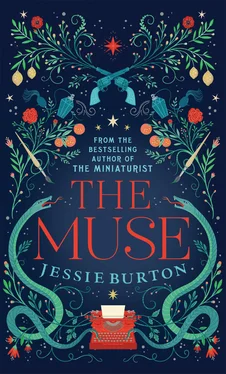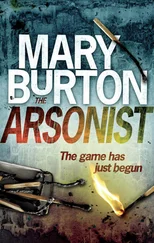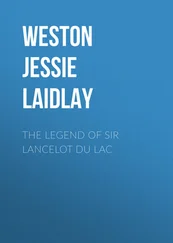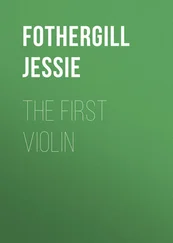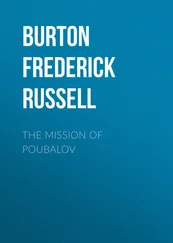I wouldn’t say Quick’s mind was diminishing, despite her protests of hallucinations and insomnia. It was almost the opposite to her body; an augmentation, her imagination inhabiting more than just the present. Somewhere inside her memory, a drawbridge had been lowered, and the foot soldiers of her past were pushing through. She wanted to talk; but couldn’t. She didn’t have the words.
‘Please lock the door,’ she said, beginning to rally a little. ‘Odelle, I’m so sorry about your bottle.’
‘It’s all right.’
‘I’ll make it up to you in my will.’
Her black eyes glimmered with gallows humour. ‘Got a cellar in Wimbledon, have you?’ I said in kind, trying to chivvy her spirits.
‘Something like that. Fetch my handbag, would you? I need the pills.’ She moved slowly to the drinks table. ‘Gin?’
‘No, thanks.’
I watched her pour one, breathing deeply, corralling herself as the clear liquid glugged into the tumbler. ‘Those are bloody strong,’ she said as I handed her the pills. ‘I fucking hate them.’
The expletive, the bitterness in her voice, shocked me. I forced myself to sit, reminding myself I was a junior employee, and must be mute and mild. Pushing Quick to tell me things I wanted to know was clearly not going to work. I’d suspected that it wouldn’t, after the night with the telephone book, and now I had one smashed champagne bottle as confirmation. As frustrating as I found it, I had to be her blank canvas. Patience was never my strong suit, but as long as it kept her talking, it was better than silence.
‘There’s a fellow called Barozzi in Venice,’ she said, lowering herself into her leather chair and reaching for her cigarettes. ‘Works for Guggenheim. Around the time Mr Scott’s painting was being made, Peggy Guggenheim was attempting to open a gallery in London.’ Quick stilled herself for a minute, before finding the strength to continue. ‘She succeeded. The place was on Cork Street, before the war turned it on its head and it closed.’
‘I see.’
‘You don’t. The point is, she — or others at her gallery — are good with keeping paperwork. Barozzi found some rather interesting correspondence in her archives, sent it to Reede, and he’s beside himself.’
Cork Street . I knew the name — it was the street that the pamphlet came from. My skin began to tingle.
‘He now has evidence that Mr Scott’s painting was a commission for Peggy Guggenheim, as a twin to Women in the Wheatfield .’
‘A twin?’
‘He’s found a telegram addressed to Isaac Robles, which for some reason was never sent. It was destined for Malaga in Spain, dated September ’36, enquiring how much longer she will need to wait for the “companion piece” to Wheatfield , which Robles had called Rufina and the Lion . Barozzi has acknowledged that no deposit was actually given Robles for the Rufina piece, otherwise Mr Scott could have found himself in a lot of trouble, given that he’s apparently got no proof of purchase. The Guggenheim could have tried to claim it as theirs.’
I marvelled that Quick could talk about another discovered telegram, as if the one hidden in her own house wasn’t inextricably tied up with all this too. Not only was she acting as if the smashed champagne bottle was not deliberate sabotage, she was now pretending that our evening with the telephone book had never happened.
‘ Rufina and the Lion ,’ I repeated. ‘That’s what Lawrie’s painting is called?’
‘That’s what Reede believes. Ever heard of Saint Rufina?’
‘No.’
Quick sipped her gin. ‘The image of Mr Scott’s painting fits the story perfectly. Rufina lived in Seville in the second century. She was a Christian potter, who wouldn’t kow-tow to the authorities’ rules when they told her to make pagan icons, so they chucked her in an arena with a lion. The lion wouldn’t touch her, so they cut off her head. And with this mention of a “companion piece”, Reede believes he’s found a connection between Mr Scott’s painting and the more famous Women in the Wheatfield , which might change the way we look at Robles entirely.’
I gazed at her, feeling determined, ready to enter into a battle of wills. ‘But you told me that Isaac Robles didn’t paint it.’
Quick slugged back another painkiller. ‘And yet, we have a certified telegram from a world-class art collector, stating that it was intended as a companion piece to one of the most important paintings to come out of Spain this century, currently in the Guggenheim collection in Venice.’
‘Yes, but there was someone else in that photograph too. A young woman.’
I waited for Quick to speak, but she did not, so I carried on. ‘I think she was called Olive Schloss. In that letter at your house, it appears she won a place at the Slade School of Art around the time that Isaac Robles was painting. I think she painted Women in the Wheatfield .’
‘I see.’ Quick’s face was impassive, and my frustration grew.
‘Did you think she made it, Quick?’
‘Made what?’ Her expression turned hard.
‘Do you think Olive ever made it to the Slade?’
Quick closed her eyes. Her shoulders sagged, and I waited for her to reveal herself, to release the truth that had been broiling in her ever since seeing Lawrie’s painting in the hallway of the Skelton. Here it came, the moment of confession — why she was in possession of the telegram from Peggy Guggenheim and the letter from the Slade — how it was her own father who had bought Isaac Robles’s painting, a piece of art she had created herself.
Quick was so still in her chair, I thought that she’d expired. She flicked her eyes open. ‘I’m going to hear what Mr Reede is saying,’ she said. ‘I think you should come too.’
I followed her down the corridor, disappointed. But I was getting nearer, I was sure.
We knocked on Reede’s door and were told to come in. Lawrie and he were sitting facing each other in the armchairs. ‘Can I help you?’ Reede said.
‘Miss Bastien and I will be the ones on the front line once this exhibition gets underway,’ said Quick. I saw how tightly she was gripping the door frame. She was torturing herself. ‘It might be wise if we were to sit and take notes, to understand what you’re proposing.’
‘Very well,’ said Reede. ‘You can sit over there, ladies.’
We looked to where he was gesturing; two hard wooden chairs in the corner. Either Quick was being punished, or Reede was blind to how frail she was. Lawrie caught my eye as I sat down; he looked excited, alive with the possibilities of his painting. Rufina and the Lion was propped up on the mantelpiece, and I was no less overwhelmed by its power than the first time I saw it, by how much that girl and the severed head she held in her hands had already changed my life. If Lawrie hadn’t used it to try and take me on a date, would any of us even be sitting here today — would Quick be unravelling like this, despite her insistence on blaming the cancer and its painkillers?
Directly above Reede’s head sat the lion, imperial and implacable as so many painted lions are. Yet today, it looked so curiously tamed. I gazed at the white house in the distant hills; its painted red windows, how tiny it was compared to the vast, multicoloured patchwork of fields which surrounded it. Rufina and her second head stood looking back at me, at all of us. Thirty years ago, Isaac Robles and a girl I was sure was Olive Schloss stood before this very picture, for a photograph. What had Isaac and Olive been to one another?
Inevitably, I looked to Quick. She seemed to have gathered herself from her earlier distress; sitting straight now, notebook on her lap, eyes on the painting. Whatever the truth was, it seemed to me that she was going to let this exhibition go ahead with no sabotage on her part, and I felt confounded by her capitulation.
Читать дальше
